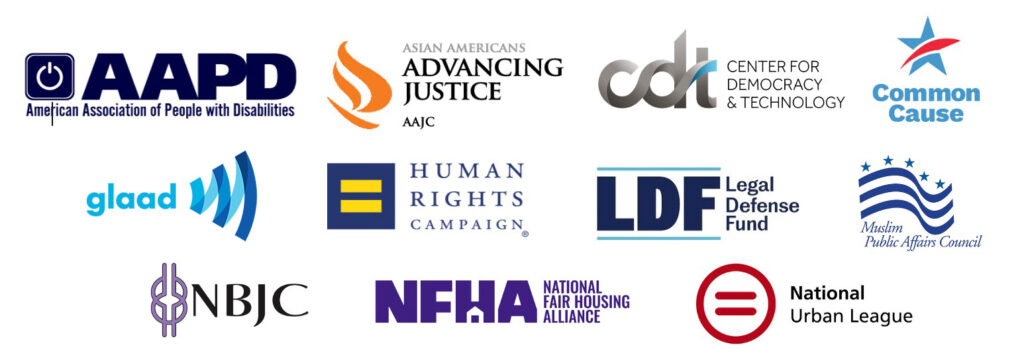
January 14, 2025
Mr. Mark Zuckerberg
Via Email
Re: Meta civil rights advisory group’s grave concerns with content policy changes
Dear Mr. Zuckerberg,
As a group of external experts whom Meta has convened for years to advise on how its policies impact marginalized communities, we write to express our grave concern surrounding Meta’s recently announced content moderation policy changes. Meta’s changes will permit more dangerous and abusive content on its services and undermine the quality of information available to users. Both of these changes harm the users Meta claims to serve.
We are shocked and disappointed that Meta did not consult with this group or its members in considering these significant revisions to its content policy. Meta’s failure to engage even its own advisory group of external civil rights experts shows a cynical disregard for its diverse user base and calls into question Meta’s commitment to the free speech principles to which it claims to want to “return.”
A bad process makes bad policy. In your announcement, you touted Meta’s commitment to free expression, but the changes will significantly harm free speech.
The new Hateful Conduct policy will now allow far more anti-LGBTQ, racist, anti-immigrant, and ableist content on Meta’s services globally. For example, the policy now permits “allegations of mental illness or abnormality when based on gender or sexual orientation” in religious and political discourse. This exception applies only to LGBTQ persons, opening them up to discriminatory harassment and degradation. It also introduces into Meta’s policies the malicious trope of so-called “transgenderism,” a manufactured term used incorrectly to imply that being a trans person is an ideology. Moreover, while it is true that this policy explicitly targets LGBTQ people, LGBTQ people are not the only people affected by it. For people with disabilities, this policy turns their identity into a tool for hate and adds stigma to already highly stigmatized diagnoses and conditions.
The policy further allows “call(s) for exclusion or use(s of) insulting language in the context of discussing political or religious topics, such as when discussing transgender rights, immigration, or homosexuality.” With the increasing attacks on and dehumanization of LGBTQ and immigrant communities, allowing for calls to exclude these communities from schools or other civic spaces puts these communities at significant risk of harm, online and off.
These changes are devastating for free expression because they will subject members of protected groups to more attacks, harassment, and harm, driving them off Meta’s services, impoverishing conversations, eliminating points of view, and silencing dissenting and oft-censored voices. Meta has apparently entirely failed to consider the chilling effect of its policy changes—and the result will be more self-censorship, not less.
In addition to these dangerous policy changes, Meta announced that it will eliminate fact checkers and replace them with a community notes-style system in the United States. Fact-checking is not censorship, and the result of fact-checking on Meta’s services was never censorship. It resulted (rightfully) in the contextual labeling of posts—fostering more speech and debate, not less. Characterizing fact-checking as censorship risks undermining well-sourced journalism, research, and scientific study. Meta is right to seek a trusted system, and community moderation is a useful addition to help achieve that goal. However, Meta should realize that communities are only as well-informed as the information they have access to. Processes for crowd-sourced content annotation must be built to ensure reliability and accuracy. Independent and reliable sources must be part of those processes. Otherwise, the trust Meta claims to seek to build will remain elusive.
If Meta truly wants to recommit to free speech, it must commit to free speech for everyone on its services. As Meta’s external civil rights advisory group, we offer our advice and expertise in crafting a better path forward.
Signed,
American Association of People with Disabilities
Asian Americans Advancing Justice | AAJC
Center for Democracy & Technology
Common Cause
GLAAD
Human Rights Campaign
Legal Defense Fund
Muslim Public Affairs Council
National Black Justice Collective
National Fair Housing Alliance
National Urban League












